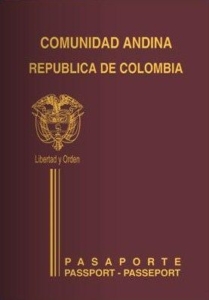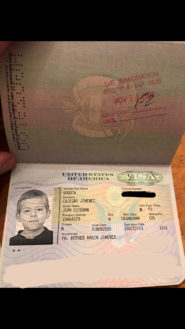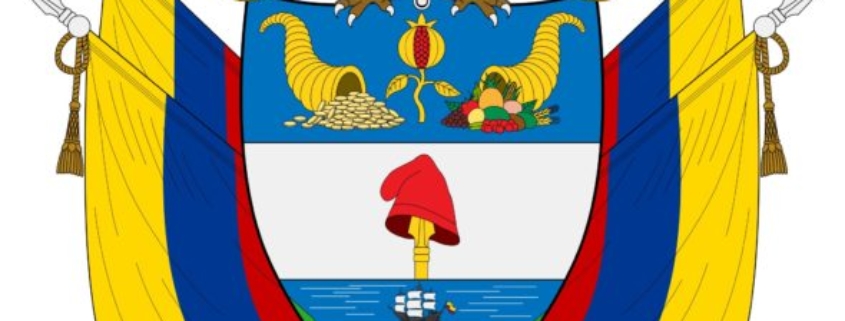Delusions of Grandeur
What’s Past is Prologue
The man said sorry. That’s all he could manage to say. He knew that it was in pain. It was the “right thing to do.” He knew that long years, wear & tear, unavoidable science, and an old expiration date was only bringing it intense pain. He said sorry some more and cut the top corner of the old booklet, rendering it useless but free from pain.
Genesis
A set of plates are laid out on their back. Magnifying light is thrust over them, covering them like the darkside of the moon during an eclipse. The room is simple and to the untrained eye it comes across holier-than-thou with its impressive machinery and church-like cleanliness. The plates beg to be torn apart. They need to be destructed in order to serve their only purpose. Like the rest of earth’s decorations, nothing short of coincidence has placed them here.
The plates are naked and cold. They almost goosebump. Through a centuries-old process known as intaglio, millions of incisions are carved into the plates, marking them forever. Ink is then pressed into these scars, where it takes shape.
Although not biologically related, the obvious offspring of these plates are the empty sheets of paper that are cut into thirty-two pages, 6.1 inches by 4.1 inches long. Like parents passing on their alleles and genotypes, the three-dimensional pressings of ink from the plate’s scars are woven onto the fabric of these papers creating a patterned design aimed at stopping forgery. It would be fair to categorize these papers as unique.
The pages, bound by a plastic cover, naively open their eyes to the world for the first time. It knows it’s supposed to care about where it comes from and who it represents. It hopes it does as is expected. Within seconds the booklet becomes self-conscious of how empty its pages are. One day they’ll be full, it hopes. It has to be, or what was the point?
The booklet does not notice its own expiration date. Instead, it thinks about all of the experiences waiting for it in the years ahead.
Cold Breath
The plastic cover bears a Coat of Arms adopted almost two hundred years prior. This booklet sits in a stack with hundreds of others. Every brick in the wall feels distinguished but undiscovered. The booklet looks out and realizes it belongs to no one, which feels strangely lonely when it thinks that belonging to someone is what it’s supposed to do.
A man walks into the room. There are waiting chairs there so he waits. When spoken to, he says he works across the street. The man explains that his wife is waiting for their kids back at the bus stop. School’s almost out and he wants to get home. The clerk listening to this man partly believes him and also half thinks that he just wants to rush through the line. The clerk says he needs to come back the next day if he wants a booklet.
The booklet smiles as it’s taken home.
The Imperial Age
 The first few months with the man and his family are the ones it remembers the most fondly. I only like the beginning of things or so the saying goes. Yes, the booklet is left in the dark while inside the closet of the master bedroom. Yes, the booklet wonders sometimes if it’s accomplishing everything it’s setting out to do. The less it goes on trips, the more the booklet’s spine hardens and aches. But every vacation, the man takes the booklet out and flies to far away places. The man holds all the family’s booklets during the trips so that they never get lost. The booklet is stamped going each way. Like a Boy Scout, the stamps are badges that somehow relate to honor.
The first few months with the man and his family are the ones it remembers the most fondly. I only like the beginning of things or so the saying goes. Yes, the booklet is left in the dark while inside the closet of the master bedroom. Yes, the booklet wonders sometimes if it’s accomplishing everything it’s setting out to do. The less it goes on trips, the more the booklet’s spine hardens and aches. But every vacation, the man takes the booklet out and flies to far away places. The man holds all the family’s booklets during the trips so that they never get lost. The booklet is stamped going each way. Like a Boy Scout, the stamps are badges that somehow relate to honor.
The booklet holds hands with the man and and his family. They travel to the sprawling theme parks in Florida. The booklet gets to breathe in the hot and cool air. The expiration date is still many years away. There is a whole life ahead to look forward to.
A David Bowie Pun about ‘Changes’
Then the man left. The trips ceased and now the family waited, along with the booklet, in the dark.
After a few months, a phone rings in the house. Plans are made. The man and the woman agree to meet in the Caribbean. For some reason unknown to this writer, this is the only way they could agree to see each other again.
Aruba gives a blue stamp to the booklet, which it accepts happily. There, the booklet and the family spend a week like the old days.
Avenues
The booklet is not present, but it hears all of the gossip. It prickles its ear when it learns of the robbery.
Apparently, the man and the woman were driving with their children when they decided to stop at a Nintendo store. The family didn’t notice anything out of the ordinary until the family was trapped inside. Held at gunpoint.
After they survived, the man decided that the woman and his children had to go far away. This place was not safe enough, and the United States offered something better. The United States was built on immigrants and he had it on good information that anybody could do anything there. The children have mentioned wanting to see the White House and the top of the World Trade Center. The booklet becomes excited knowing that a US visa takes up a whole page.
He has it all figured out, the man says. First, his woman will move across the sea and after two years he promises to do the same.
She wishes he didn’t think he could decide things for her.
Council
The woman sees a therapist and often. She is listened to, but she is tired of only speaking to herself. She constantly asks for advice, but it is never given.
She fears that if she leaves Colombia, he will never follow. Finally, she asks again, ”What should I do?”
Her therapist leans in and tells her to go to the States. “Why not? If the he never comes to you then you need to move on.”
The woman wonders what needs and wants and shoulds mean to her anymore. They seem to be justifications for what she’s going to do anyways. She holds the booklet and she is bathed in an untrustworthy ease. The booklets, that of hers and her kids, belong to her now.
The booklet learns all of this from gossiping visas.
Only two weeks separate the decision to move and the moving taking place.
Synecdoche, USA
 Once in the promised place, the woman places the booklet in a new box. It spends the following days watching a thin line of light coming through the opening. Months inch by, and the booklet only opens once. The booklet knows the man is not coming back this time.
Once in the promised place, the woman places the booklet in a new box. It spends the following days watching a thin line of light coming through the opening. Months inch by, and the booklet only opens once. The booklet knows the man is not coming back this time.
The empty pages remind the booklet of its age. The expiration date is now only a few years away and the text it’s written on seems to cover more and more of the page.
The woman cries and says she can’t leave the States. That with her student and later her work visa, there is a chance of not being allowed back in.
A year goes by. Then two. Then three. The booklet learns that the family now plans on replacing it with a blue booklet that has a different name and coat of honor on the front. But they have me. Besides, this new blue booklet doesn’t love this family. I’ve been with them my entire life, it thinks in the darkness.
Milk
The expiration date grows closer. Despite the booklet’s wishes, the printed date refuses to change. In fact, it loses all hope until one day a letter comes. The letter informs the family that they are being turned into permanent residents of the States.
Now the family can visit home again. Tickets are purchased and dates are chosen—but after the booklet’s last acceptable date.
The family holds the booklet in their arms. They smile at the aging pictures. They cut the top corner, rendering it useless but free from pain.
 Esteban Cajigas is a writer, musician, and MFA candidate at Antioch University Los Angeles. His short stories and poems have been featured in publications such as Venture Magazine, Foliate Oak, and others. Esteban also previously wrote for The Boston Globe as a correspondent and The Suffolk Voice as Editor-in-Chief.
Esteban Cajigas is a writer, musician, and MFA candidate at Antioch University Los Angeles. His short stories and poems have been featured in publications such as Venture Magazine, Foliate Oak, and others. Esteban also previously wrote for The Boston Globe as a correspondent and The Suffolk Voice as Editor-in-Chief.





